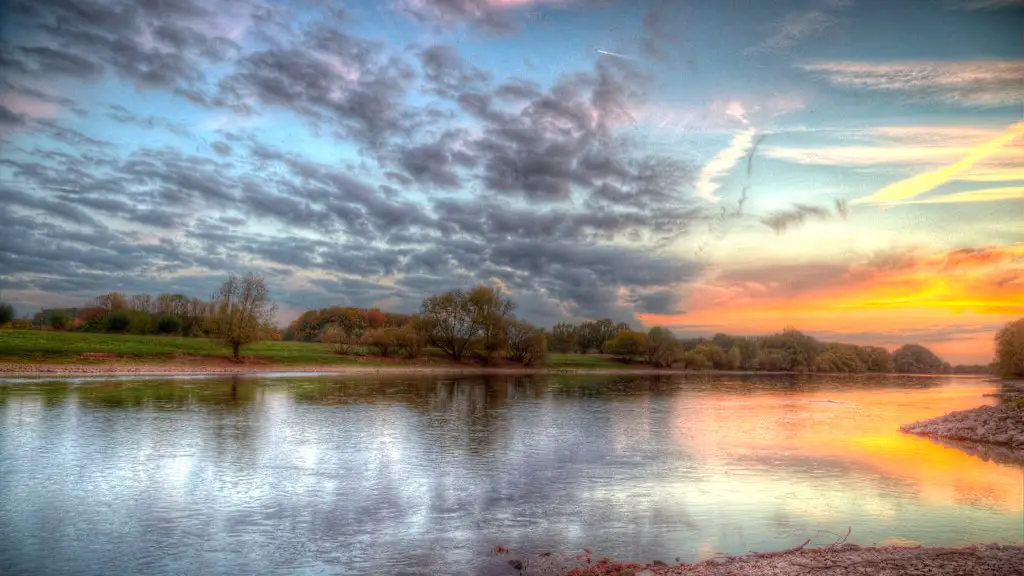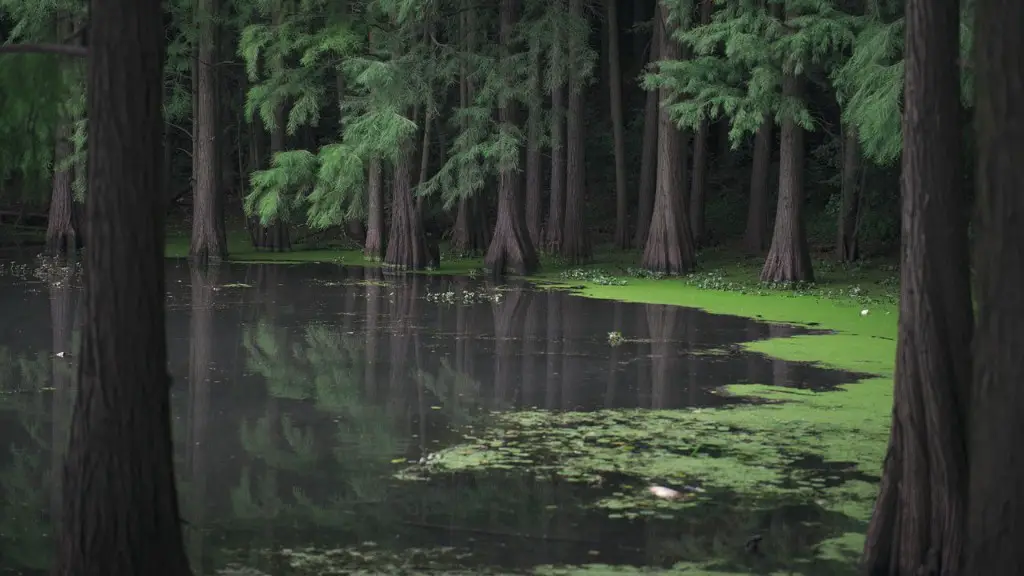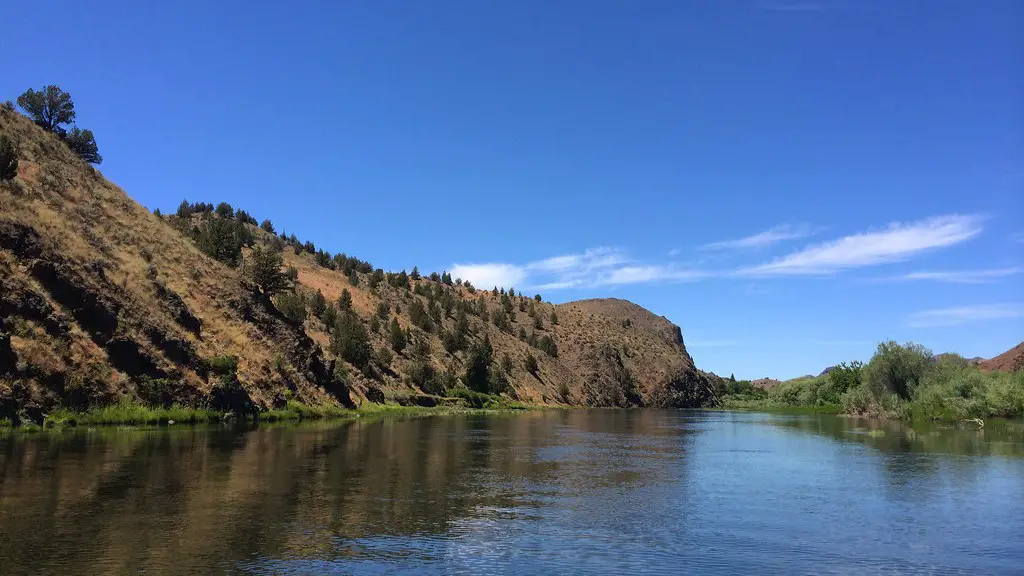The Mississippi River delta is one of the most important and extensive environmental and economic resources in the world. It is renowned for its biodiversity, intensive recreational activities, and ecosystem services.
The delta region of the Mississippi River is over 6,000 years old, though the general age and overall history of the area is surprisingly complex. To understand the age and background of the Mississippi River delta, it is important to explore the way this region was formed.
The Mississippi River delta is a sedimentary fan built up of alluvial deposits from the Mississippi and its tributaries. The river tributaries carry mud, sand, silt, and other particles from the continental interior and dump them into the shallow sea.
This deposition builds a deltaic deposit that slowly expands out into the sea. The movement of the river’s sediment is incredibly dynamic and ever-changing. As the deltaic area grows landward, new layers of sediment are added to the top of the delta each year.
The sediment build-up eventually reaches the point that the deltaic deposits form an island or coast-like structure, separated from the ocean. This process is known as deltaic progradation. The oldest section of the delta that is still in existence was formed over 6,000 years ago.
In the modern era, the deltaic region is at risk due to anthropogenic activities, like land use change and water management practices. These activities increase the risk of coastal erosion and flooding, as well as decrease the ability of the deltaic area to rebound after a storm.
The US government has enacted a number of policies to protect the Mississippi River Delta from degradation. These include increased oversight of local wetlands, improved water management practices, and the establishment of a permanent recovery fund for the region.
Environmental concerns
There are a number of environmental concerns related to the Mississippi River Delta. Chief among these is the issue of coastal erosion. Coastal erosion can have a devastating effect on the flora and fauna of the region. It can also disrupt the local economy and human settlements.
The loss of wetlands is another environmental concern. Wetlands are essential for maintaining the delicate balance in the ecology of the delta region. When wetlands are lost, it can lead to the decline of wildlife, vegetation, and soil quality.
In addition to this, the water management practices in the area can lead to a decrease in the quality of the water supply. Poor water quality can lead to the decline of fish population, which can have devastating effects on the local fishery industry.
Furthermore, water pollution from runoff from agricultural, industrial, and urban sources can lead to poor water quality, which can threaten the ecological health of the region. Finally, climate change poses an ever-growing threat to the delta region, as sea levels rise and storms become more frequent and intense.
The effects of climate change
The effects of climate change are particularly concerning for the Mississippi River Delta region. Warmer temperatures are already leading to increased evaporation rates, leading to a decrease of freshwater inputs into the delta. This is expected to cause an increase in saltwater intrusion into the delta, making it less hospitable to the deltaic organisms.
In addition, more intense storms will cause an increase in coastal erosion and flooding, further degrading the delta region. Finally, rising sea levels will mean that the deltaic deposits will be submerged and the land will no longer be able to support the ecosystem, leading to significant losses of habitat and biodiversity.
It is clear that the effects of climate change on the Mississippi River Delta could be extremely severe, risking large-scale destruction of the region’s environment and economy.
Conservation efforts
Fortunately, conservation efforts have been put in place to help protect the Mississippi River Delta. One of the most important of these efforts is the implementation of effective wetland management plans.
These plans involve monitoring, analyzing, and modifying the wetland areas in the delta region to ensure that they remain healthy. This includes implementing practices that minimize sediment run-off, as well as techniques that restore lost or degraded wetlands.
In addition, there are a number of conservation projects which aim to protect the delta’s flora and fauna, as well as improve the quality of the water. These projects often involve the construction of artificial oyster reefs, the re-naturalization of coastal habitats, and the introduction of non-native species.
The Government and private entities are also working together to improve water management practices in the delta area, such as increased water recycling, improved sewage treatment and stormwater management, and increased oversight of agricultural operations.
Conclusion
The age and overall history of the Mississippi River Delta is complex and ever-changing. The area was first formed over 6,000 years ago, and throughout the ages has been at risk due to a variety of anthropogenic activities. In more recent years, the threat of climate change has posed an even greater risk to the region’s environment and economy. Nevertheless, various conservation efforts have been put in place to protect the delta, and ensure its survival.
Effects on local communities
The effects of the Mississippi River Delta on local communities are particularly devastating. The shrinking of the delta due to land erosion and sea rise threatens the livelihoods of many local people, particularly in small fishing communities.
The loss of wetlands also has severe impacts on communities, as they are an important source of food, water, and recreation activities. This loss of natural resources can lead to increased poverty and food insecurity, as well as a decrease in local biodiversity.
In addition to this, the degradation of the water quality can have serious health impacts on local communities, particularly those that rely on fish for sustenance. Furthermore, it can also lead to an increase in insect-borne diseases, like malaria and dengue fever.
The area is also at risk of increased flooding, as sea levels rise and water becomes deeper and more erosive. This has the potential to displace entire communities, leading to significant socioeconomic disruption.
Mitigation efforts
In order to mitigate the effects of the delta on local communities, the US government has put in place various measures. These include the promotion of sustainable agriculture, the monitoring of water quality, and the protection of wetlands.
In addition, the government also offers various programs and incentives to local communities, such as grants and subsidies, in order to encourage the adoption of more sustainable practices.
Furthermore, public education campaigns have been put in place to raise awareness of the environmental and socio-economic threats posed to local communities. These campaigns aim to emphasize the importance of conservation efforts in protecting the future of the delta.
Role of private sector
In addition to Government initiatives, the private sector also plays an important role in the conservation of the Mississippi River Delta. Private companies have developed innovative technologies to reduce the effects of coastal erosion and habitat loss, as well as to improve water quality in the region.
These technologies include improved water management techniques, wetlands restoration, and ocean monitoring systems, which can help to reduce the risk of flooding and erosion, as well as improve water quality.
In addition to this, many private companies have partnered with local communities to develop sustainable economic initiatives, such as eco-tourism, aquaculture, and sustainable fishing, which can help protect the environment and create new employment opportunities.
Finally, private companies are also investing in infrastructure projects to protect the local communities from the effects of climate change. This includes the construction of sea walls and levees, as well as the implementation of flood mitigation strategies.





